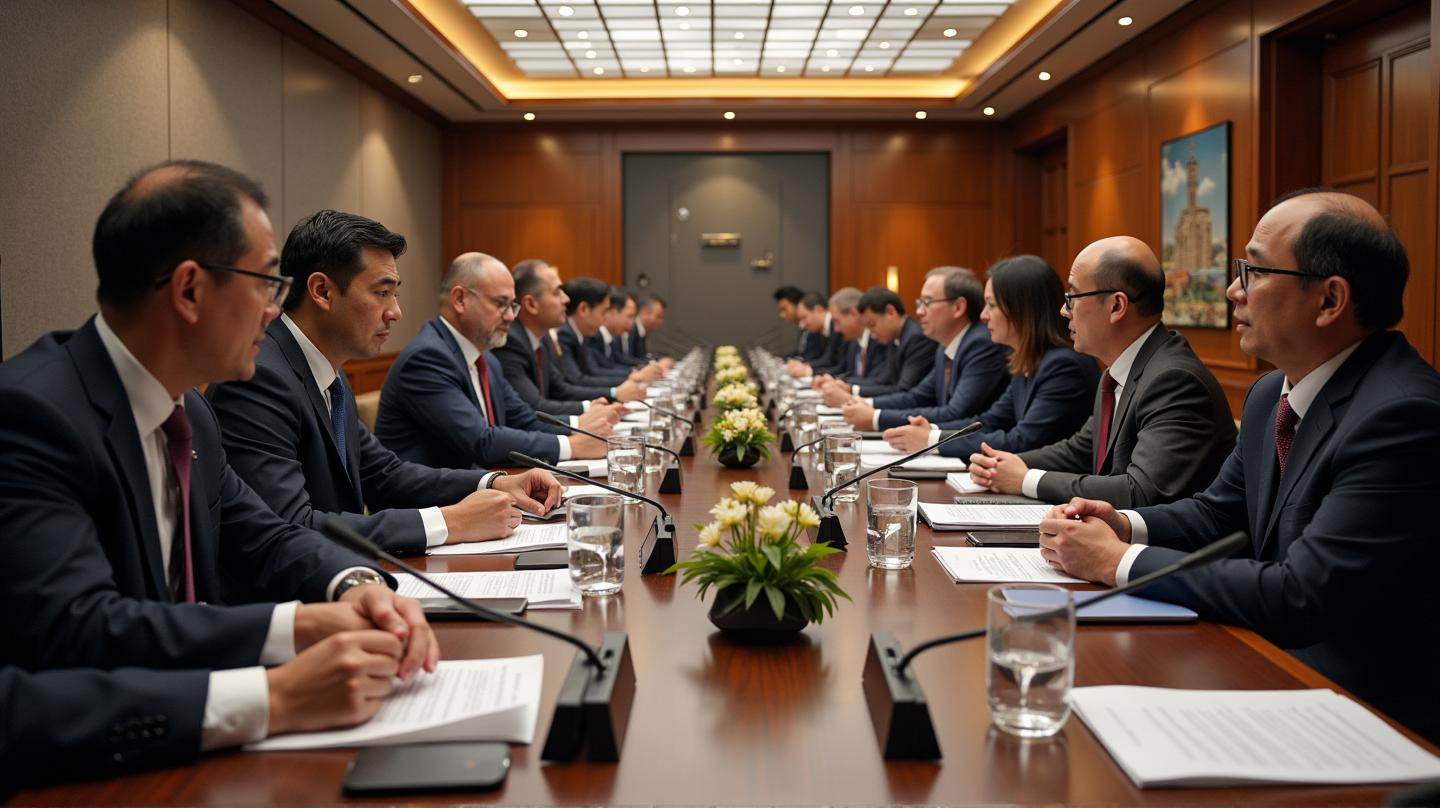South Korea's Bold New Middle East Policy: A Seminar with TRENDS Korea
Key insights on South Korea's evolving Middle East policy shared at a National Assembly seminar with TRENDS Korea's involvement.

In a move towards redefining its relationship with the Middle East, South Korea recently hosted a policy seminar at the National Assembly with pivotal insights and recommendations, marking a shift in diplomatic strategy.
Transforming Perceptions: The New Focus
Held under the patronage of the TRENDS Research & Advisory Korea Office, this high-level gathering called for a pragmatic foreign policy deeply rooted in South Korean national interests. According to TRENDS involvement, a paradigm shift is essential to transform perceptions of the Middle East. The view extends beyond a mere energy hub to one of strategic partnership, fostering mutual understanding and interests.
The Seminar’s Resounding Evidence
The seminar was hosted in Meeting Room 5 within the hallowed halls of the National Assembly Members’ Office Building. As orchestrated by TRENDS Korea Office, a collaboration with Representative Hong Ki-won and academic alliances underscored the significance of the event. Representative Hong emphasized the need to reconsider Korean policy, granting the Middle East its justified priority during President Lee’s nascent administration.
Embracing Complexity: A Call for Balanced Diplomacy
In the wake of shifting geopolitical landscapes, Kim Chang-mo, Secretary-General of the Korea–Arab Society, underscored the importance of balanced diplomacy, recognizing Korea’s burgeoning global stature. Meanwhile, Kim Jong-doo, Director of TRENDS Korea Office, championed initiatives aimed at more agile, effective policies.
Mapping an Independent Future
Former ambassador Yoon Kang-hyun’s keynote address resonated deeply. He described the Middle East’s pivotal role as a gateway connecting continents, advocating for diplomacy unshackled from formality. As connections grow, the call for special envoys, cultural exchanges, and genuine cooperation rings clearer.
Beyond the Energy Sector: Economic Aspirations
Dr. Lee Kwan-hyung’s economic overview was transformative, stressing diversification beyond energy. Recommendations emerged for accelerated Free Trade Agreement actions with the Gulf Cooperation Council, advocating for cross-regional economic corridors and a dedicated Korea-Middle East summit to build lasting ties.
Concluding with Actionable Insights
As the seminar closed, unified voices called for stronger development assistance programs and trust-based diplomacy. The notion of establishing a dedicated research institution focused on Middle East affairs reaffirms South Korea’s commitment to long-term, strategic relationships.
In conclusion, this seminar was more than just a discourse; it was a clarion call for South Korea to join the ranks of nations actively shaping the Middle East dialogue. The insightful, transformative agenda marks the benediction of an era where mutual respect and strategic collaboration redefine destinies.





